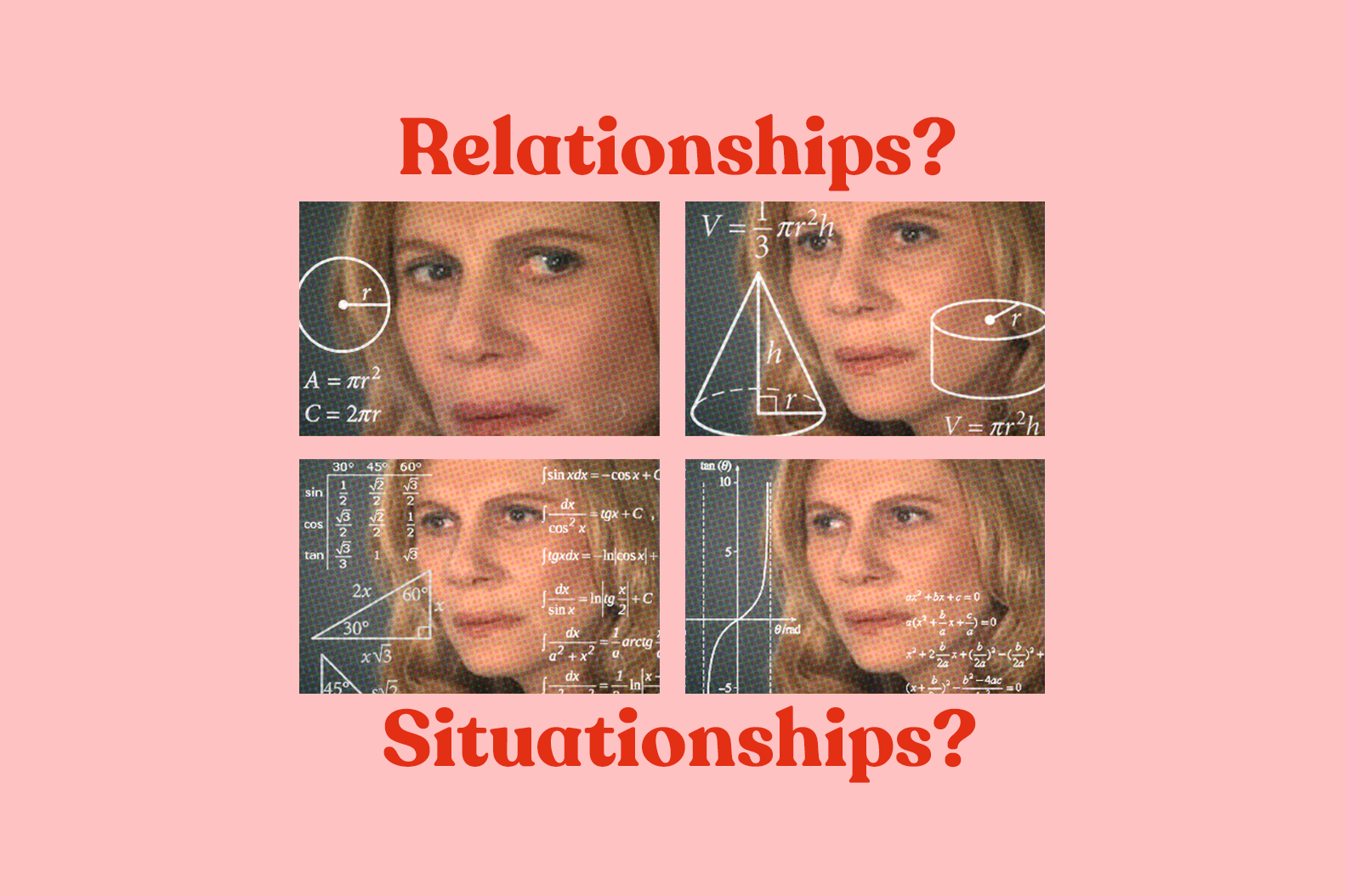Friendships with the opposite gender can be pretty tricky to navigate.
It’s not at all the same as friendships with the same gender, so our approach towards them has to differ.
Male-female friendships have great potential to enrich our lives in many ways, but if not handled appropriately, they can present risks.
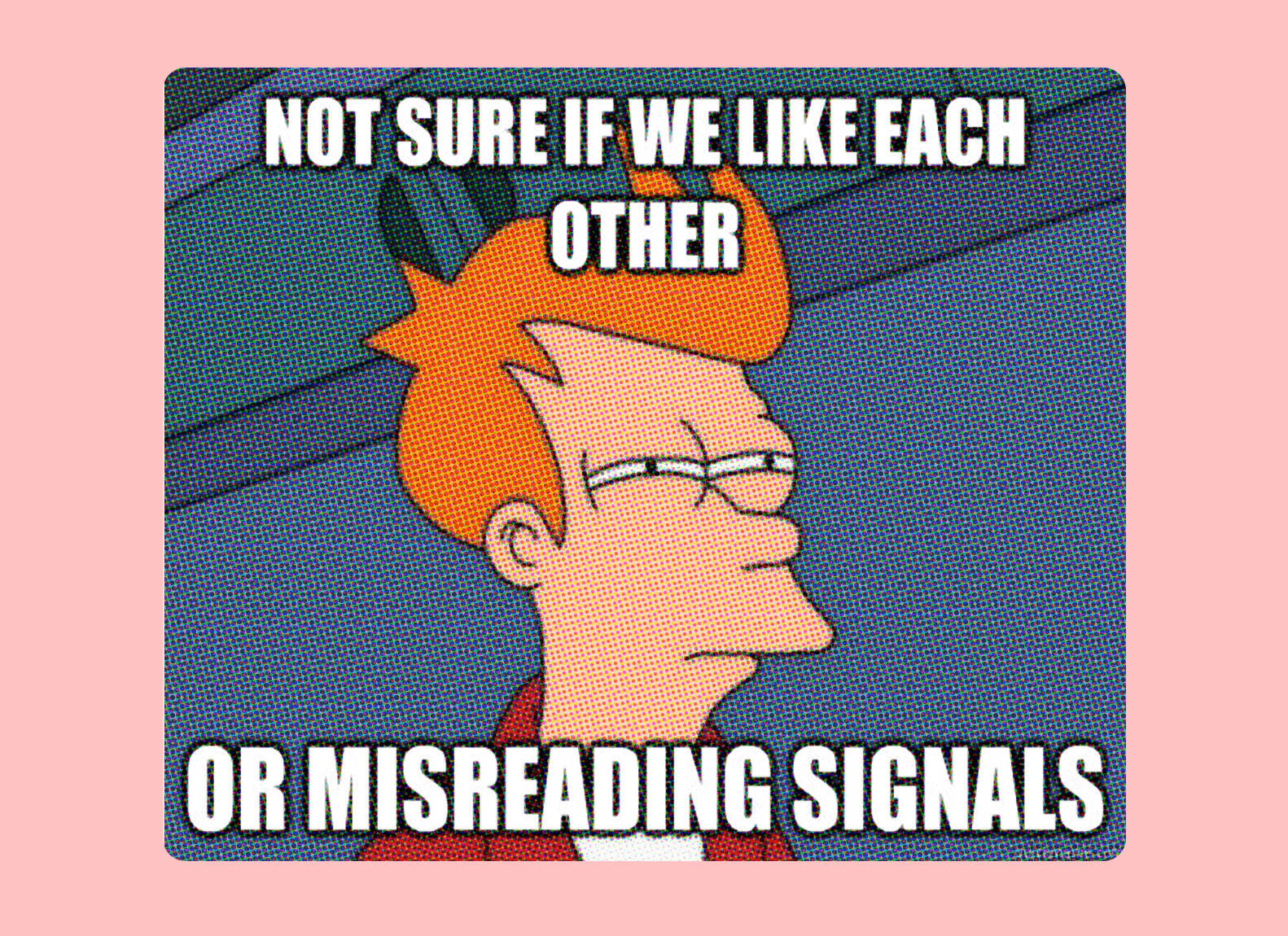
The way I see it, there are two unhealthy extremes that people tend to fall into when relating with the opposite gender.
- Being too cautious and rigid towards the opposite sex, causing one to avoid friendships and interactions with them at all costs.
- Being too casual and comfortable with the opposite sex, causing one to interact with them in inappropriate ways.
While both are causes for concern, the latter is far more prominent in today’s society and is also responsible for…
… Situationships.
It’s the new, unofficial term for “It’s complicated”. The golden rule of a healthy and loving relationship is to pursue clarity. Situationships completely go against this.
Situationships are romantic relationships that lack clear commitment or parameters.
They represent the grey area between “just friends” and “in a relationship” and, in contrast to friends with benefits, involve emotional dependency from both parties.
Without clarity in a relationship, nobody knows what to expect.
Without boundaries, lines are crossed and there is great potential for both parties to sin and hurt each other.
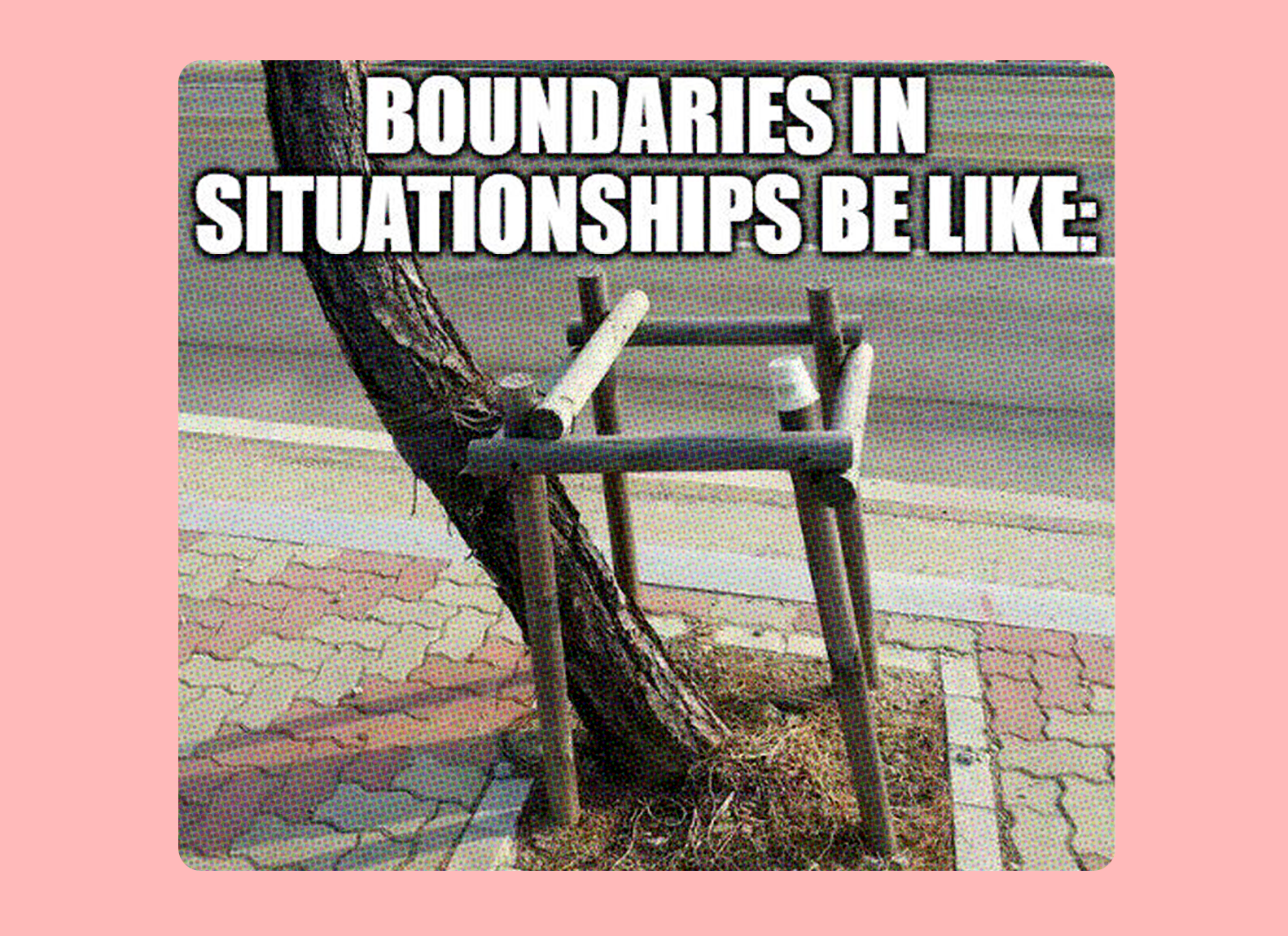
Take for example, a guy and girl who have a relationship akin to a real, romantic relationship.
They do things that official couples would do, sharing emotional and physical intimacy (maybe even sexual intimacy – which the Bible tells us is wrong outside of marriage).
And yet, they do not have any label on their relationship and when asked, they would merely call it a “friendship”.
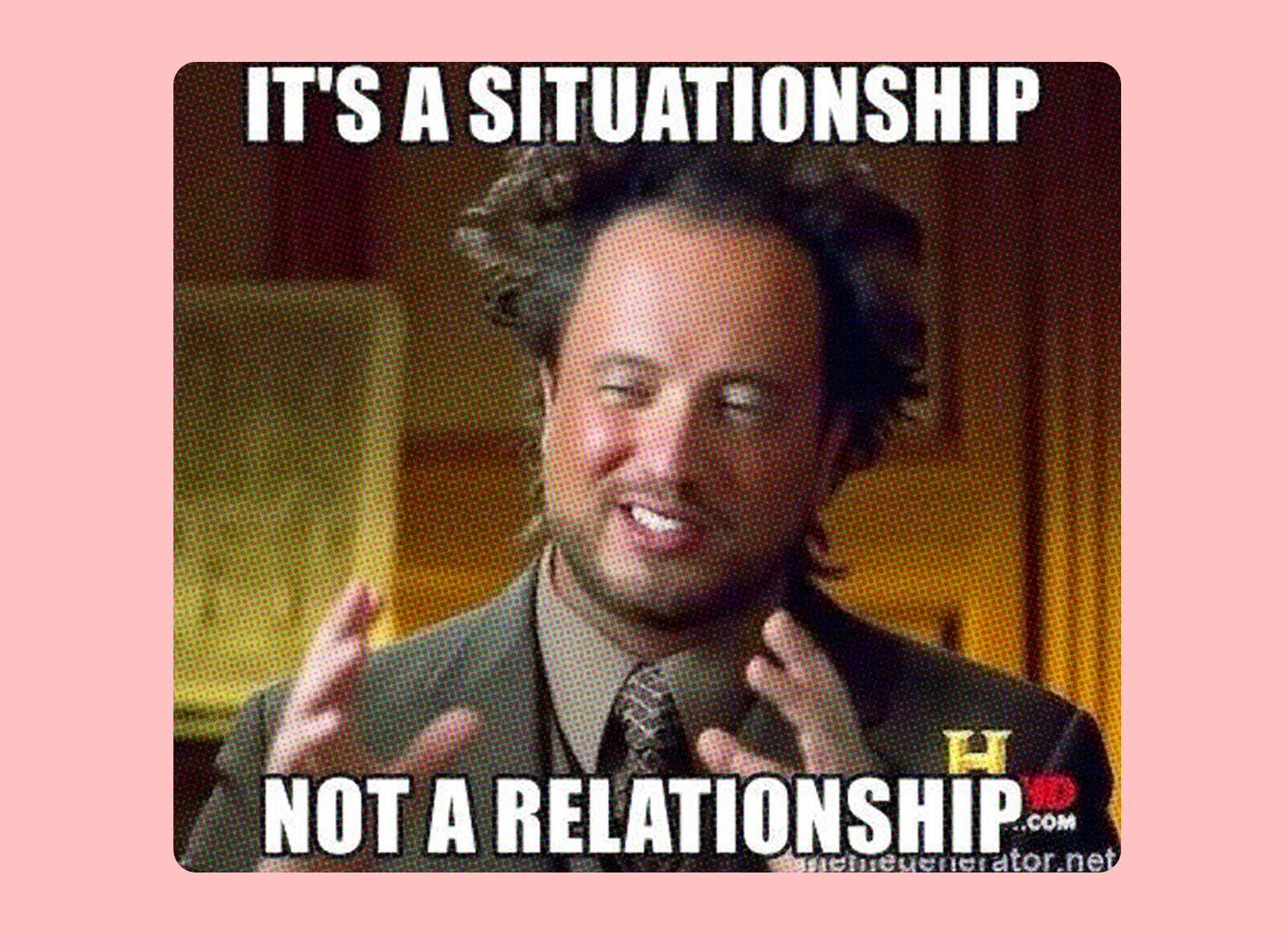
Then, say, one of them goes and flirts with someone else. The other is left feeling frustrated and upset.
However, they struggle to come to terms with their emotions as, technically, there were no expectations for something more in their relationship in the first place.
Situationships hence create false hope and leave those involved second-guessing many times. They are emotionally and spiritually unhealthy.
Situationships: 3 dangers
1. Situationships dishonour God’s design for marriage
“That is why a man leaves his father and mother and is united to his wife, and they become one flesh.” (Genesis 2:23)
God’s design for marriage is that of a lifelong union between a man and a woman from whom He seeks godly offspring.
In godly relationships that start with marriage in mind, couples seek clarity. Above all, they seek God together with pure hearts. Theirs is a selfless and deep love centred around God.
On the other hand, situationships are fleeting, hollow and yet demand much.
They are self-seeking because it quickly becomes a game of “how much can I take from him before this ends?”.
2. Situationships do not align with the commandment to love our neighbours
“Love the Lord your God with all your heart and with all your soul and with all your mind and with all your strength. The second is this: ‘Love your neighbor as yourself.’ There is no commandment greater than these.” (Mark 12:30-31)
A situationship is not loving our neighbour because self-benefit is the primary goal for both parties – rather than loving and putting the other party first.

You end up not wanting what’s best for the other person, but the “best of both worlds” – the connection of being in a relationship with no strings attached.
That opens both parties up to crossing unhealthy boundaries together, unclarified expectations and hurt.
It is an arrangement that makes room for sin.
3. Situationships stand in the way of godly friendships
Friendships are a precious thing that need to be navigated with wisdom. Friendships with those of the same gender? Not the same as with those of the opposite gender.
We must take note of the differences between how both genders interact when approaching opposite gender friendships.
In a recent episode of local podcast Not Gonna Lie, Natasha, Zelanie and Wei Xuan pointed out that in cross-gender friendships, we must be aware that the opposite gender is used to different kinds of interactions. That is why we must relate to them in a manner that is appropriate.
Our intentions must match our actions. If there is a mismatch, we should consider adjusting ourselves for the other person’s sake.
A situationship is neither a healthy friendship nor a healthy relationship.
Situationships will cause regret among friends. When a situationship ends, it will be impossible for the friendship to return to the way it was before as either party may have unresolved romantic feelings, hurts or disappointment.
A situationship is neither a healthy friendship nor a healthy relationship. It causes both parties to miss out on the joys of an opposite gender friendship that is built entirely around God.
Situationships not only dishonour God, they also dishonour all parties involved. How then, do we avoid them or come out of them?
Boundaries and accountability
Boundaries are like safety gear when you’re climbing a mountain. Should you lose your grip, they’ll catch you and make sure you don’t fall.
Yet, we sometimes think of boundaries as fortified walls meant to cage us in and deprive us of happiness.
What boundaries actually do is keep us safe as we navigate opposite gender friendships and build godly and healthy ones.
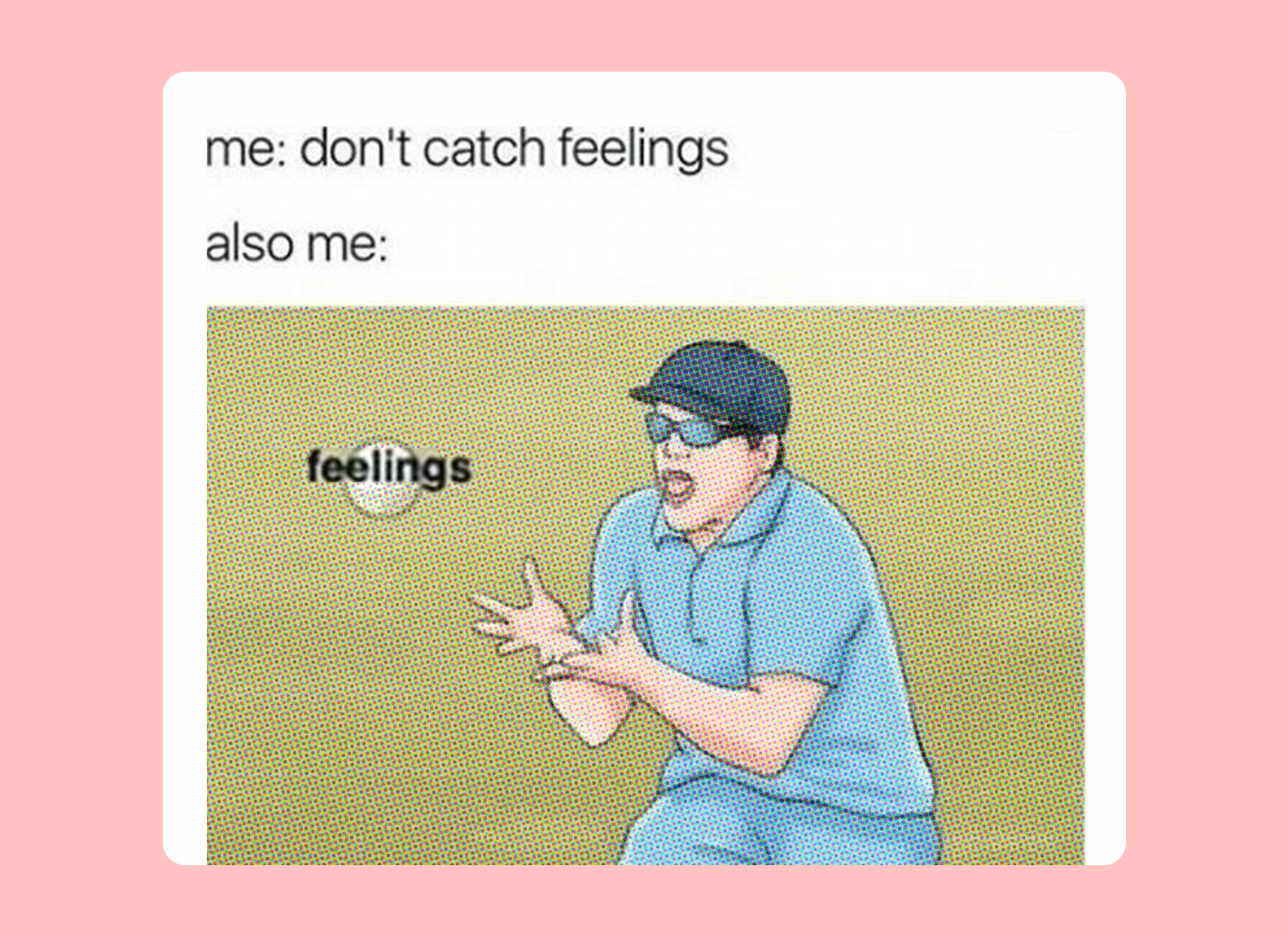
In an interview with Pastor John Piper about the limits of dating, this is what he has to say:
“A man, especially, needs to stay awake to what is happening emotionally, spiritually, and personally in the relationship. Don’t take yourself into a depth of spiritual and emotional bonding that will not consummate in marriage and sexual union.
“Be alert that every step deeper into emotional and spiritual union with a woman’s soul is a step toward physical union — that is, towards marriage. Don’t take her there. Don’t go with her there if this is not moving toward a marriage relationship. It will deeply wound her and you if you awaken depths of oneness in each other emotionally and then try to just walk away from it. Those depths are meant to lead somewhere, namely sexual intercourse in marriage.”
Everyone needs to set healthy boundaries that protect ourselves and those whom we love.
This is where accountability comes into play: Christian author Marshall Segal advises us to “Lean hard on the people who know you best, love you most, and will tell you when you’re wrong”.
So be accountable about your opposite gender friendships to a church mentor or leader you can trust, who can point you back to the right direction that honours God.
Our spiritual friends, leaders and mentors who truly know us, love us and want what’s best for us, are well-placed to guide us in relating to the opposite gender healthily.
At the end of the day, Christians should do everything to glorify God (1 Corinthians 10:31) and love God above all else (Matthew 22:37).
When loving God and loving others as ourselves are our priorities, we can be sure our paths will be made right (Proverbs 3:5-6).
So let’s centre our relationships – platonic or romantic – around God. That’s how we can enjoy healthy and loving relationships that reflect and please Him!
- What is one thing about this article that impacted you? Why?
- Are you currently in a situationship?
- What practical steps must you to take to come out of this situationship and honour God?
- Who are some trusted believers in your life whom you can be accountable with?
- This week, seek them out and ask that they would help you walk rightly before the Lord in the area of relationships.


